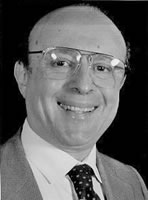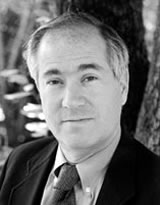9/27/2011· Psychiatry
How Child Psychiatric Testimony Works
The legal system and juries customarily weigh evidence more regularly than the psychoanalytic profession.
By: Dr. Stephen M. Raffle
Tel: 415-461-4845
Email Dr. Raffle
"MAKING BEQUESTS" INCLUDES: MAKING WILLS AND CODICILS TO WILLS, TRUSTS, INFLUENCING THE DISTRIBUTION OF AN ESTATE BY BREACH OF FIDUCIARY RESPONSIBILITY, UNDUE INFLUENCE OVER A FIDUCIARY
Undue influence occurs when the conduct of another prevents a testator from exercising his or her free will in the creation or execution of a will, trust, or other fiduciary instrument. The occurrence of undue influence is established by the trier of fact (judge or jury), after it is demonstrated by the preponderance of the evidence that the testator's testamentary disposition was caused by undue pressure, argument, or other coercive acts which destroyed the testator's freedom of choice in the disposition of the assets of his or her estate. Undue influence may be proven with circumstantial evidence, i.e., without direct evidence. It is necessary to demonstrate by fact that undue influence has occurred. Often the term "undue influence" in a testamentary setting is lumped with the phrase "testamentary capacity." A dispute about testamentary capacity may arise in the same case as undue influence, but from the forensic psychiatrist's point of view, the issues are different, which is why I address them separately, and encourage you to read more at http://www.psychiatristexpertwitness.com/expert-topics/testamentary-capacity.
More than many other medical legal issues, disputes about undue influence, and challenges of testamentary capacity, in my experience, directly benefit from the expertise of a psychiatrist with forensic training and the medical education of a physician. The issues play out in court only after the (testamentary) fact, when the estate is to be distributed and accusations fly. All sides have a position but one thing is always clear: personality, motive, clarity of mind, and in some cases psychopathology, of anyone involved, eventually will enter the conversation.
For example, I have found contributory side effects of medication, mentally disabling brain conditions (e.g. a brain tumor), dementia brought on by the toxic side effects of kidney damage, to name but three. Conversely, physical causes of mental decline notwithstanding, the primary impact on testator behavior may prove to be the actions of another. If the testator is deceased, the medical training of a forensic psychiatrist, who is a medical doctor, becomes especially relevant as medical records are often the primary evidence available.
As a forensic psychiatrist, I am aware there are differing points of view about how the mental state of the person "unduly influenced" can be identified, measured or even if there is a type of personality more amenable to being "unduly influenced." Many people lump together the criteria for "lacking testamentary capacity" with being victimized by "undue influence." My understanding is it is not necessary to demonstrate the existence of mental dysfunction in order to prove undue influence. There may be mental "weakness" (see Estate of Yale), which is probative of undue influence. The requisite mental state of the victim of undue influence may be less debilitated than the mental defect required to establish a lack of testamentary capacity. In the Estate of Yale, the court held that a persuasive indicia of undue influence is a physical and mental condition of the testator "such as to permit a subversion of his freewill." [Emphasis added.] The forensic psychiatrist examines and testifies about "physical and mental condition."
In my experience, usually undue influence is established by circumstantial evidence. By necessity, the circumstantial evidence establishes undue influence through inferences. Generally, the existence of undue influence is not investigated until the death of the testator, at which time, of course, the testator no longer is available to testify about acts that influenced him. Rarely is direct testimony available. In the case of David v. Hermann, for example, the court inferred the settlor's sudden negative shift in attitude toward the older daughter to be caused by the younger daughter falsely "poisoning the settlor's mind because it could find no other rational explanation." ("Settlor" is used where a trust is established; testator is more common in the writing of a will). Regardless, if the capacity (in lay terms, mental wherewithal) does not exist, then the validity of the instrument comes into question. In the legal commentary I have relied on, terms like "rational explanation" and the "unlikeliness" of circumstances help guide my assessment about what is "usual and unusual" in the history of the settlor/testator and how the past history comports with subsequent behavior regarding the testator's plans to distribute an estate.
Regarding cumulative medical evidence, I understand evidence of cumulative events are taken together in order to support a finding of undue influence even if no one event alone is sufficient as proof.
As a forensic psychiatrist, I may be asked to explain how isolation affects decision-making or how various medical illnesses may create "mental weakness" (in the Yates case) or susceptibility to coercion, suspiciousness, mistrust, or misperception of reality.
One of the inferences of undue influence examined is if a close or isolative relationship existed between the testator and the proponent of the changed will or trust at the time the new/modified will or trust is entered into. Other factors of inferential undue influence for me to consider are the activities occurring before and after the execution of a challenged testamentary document by the proponent of the testamentary document itself. Another circumstantial fact may be the presumption of a confidential relationship between the now "favored" beneficiary and the testator. This is often demonstrated by having check-writing authority and otherwise being empowered to take over the financial affairs of the testator, and how this has made the testator dependent on the favored beneficiary. Yet other examples of manipulation caused by undue influence may be the receipt of a joint tenancy interest in real property even though the property was bought entirely by the testator, or being employed by the testator's company (or promoted if already an employee) up to and including being made an officer of the company.
When the beneficiary participates in the creation of documents intended to affect the disposition of the testator's estate including direct communication with the testator's attorney, for me as an evaluator this represents strong circumstantial evidence of undue influence. As the medical evaluator, I evaluate how mobile, and able to make independent plans for transport, is the testator.
I understand the trier of fact may consider undue profit as an indicia of undue influence. In the Estate of Gelonese, a testamentary disposition that does not treat a descendant's children equally, it was found "unnatural, demonstrating undue benefit to one child over the other." The question whether the proponent unduly profited by testamentary document is resolved by the terms of the testamentary document itself. As a psychiatric evaluator, I look at the relative complexity of the instrument which is drawn and assess the testator's mental capacity as reflected by either direct or indirect evidence, e.g., deposition testimony, films/videos, medical records, and testimony from disinterested parties to indicate undue influence, i.e., did the testator have to rely on the favored beneficiary to "understand" the document. When a testator "trusts" a sole or favored beneficiary to tell the testator what the will or trust means, then in my opinion there is substantial room for misrepresentation and self-dealing.
Again, for further comments on this issue, please turn to my discussion of testamentary capacity. http://www.psychiatristexpertwitness.com/expert-topics/testamentary-capacity.
Stephen M. Raffle, M.D., a Board Certified Forensic Psychiatrist, has over 36 years of experience offering his expert opinion in Federal and State jurisdictions. Dr. Raffle has consulted for attorneys, insurers, employers and judges. His track record and experience is impressive: over 5000 psychiatric evaluations, 700+ depositions, 150+ trials, a successful clinical practice, teaching career at U.C. Medical School, and Hastings College of the Law postgraduate course "Trial and Appellate Advocacy" for 11 years instructing attorneys about the direct and cross-examination of expert witnesses.
©Copyright - All Rights Reserved
DO NOT REPRODUCE WITHOUT WRITTEN PERMISSION BY AUTHOR.

9/27/2011· Psychiatry
How Child Psychiatric Testimony Works
The legal system and juries customarily weigh evidence more regularly than the psychoanalytic profession.

6/21/2022· Psychiatry
The Structural Interview Method For Diagnosing Borderline Disorders: A Critique
By: Dr. James Reich
The authors discuss difficulties in the assumptions that underlie Kernberg's Structural Interview method for diagnosing borderline personality organization and demonstrate methodological limitations in the studies that have reported results from its use.

4/17/2013· Psychiatry
What is Preventive Psychiatry?
Preventive psychiatry is a branch of preventive or public health medicine. It aims to promote good mental health in individuals and to prevent the occurrence or reduce the incidence of psychiatric disease in a population.




